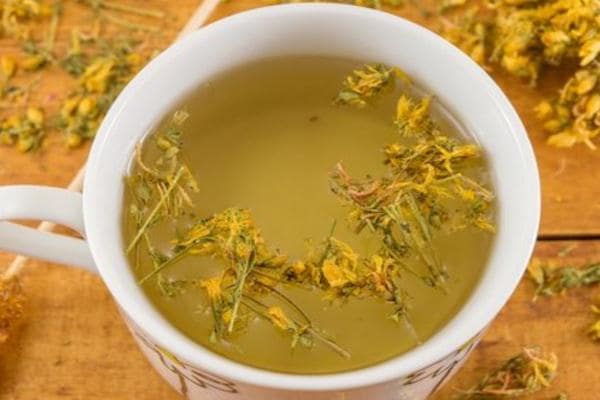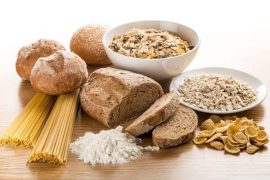Зміст
St. John’s wort has been widely recognized in natural medicine. Preparations based on its flowers and leaves – tinctures, juices, oils and extracts – have a very beneficial effect on our health and help us in the treatment of many diseases. Practice shows that St. John’s wort restores skin pigment and supports the treatment of vitiligo, improves blood circulation and makes blood vessels more elastic, cleanses the body of toxins and speeds up metabolism. And this is only a small part of its capabilities.
St. John’s wort: healing properties?
The healing properties of St. John’s wort are directly related to its composition. And the last one, admittedly, looks impressive. St. John’s wort contains, among other things, valuable tannins, flavonoids, essential oils, multi-phenolic acids, choline, phytosterols, pectin, carbohydrates and mineral salts. It is thanks to them that this has such a beneficial effect on our health.
It works like:
- antiseptic
- antibacterial,
- astringent,
- diastolic,
- diuretic,
- antidepressant,
- enhances digestion.
St. John’s Wort: In the treatment of which diseases will they help us?
St. John’s wort is used to prevent many diseases:
- has a positive effect on blood vessels
- supports the treatment of infected wounds, frostbite, burns, ulcers
- helps get rid of rhinitis and pharyngitis
- restores the correct skin pigment and supports the treatment of vitiligo
- has a beneficial effect on the liver, eliminates its disorders and supports the treatment of kidney stones
- fights inflammation of the stomach, intestines and mouth
- reduces abdominal pain and minimizes flatulence
- removes toxins and toxins from the body
- used in the treatment of depression, neurosis, bedwetting and gout
Hypericum: Precautions
St. John’s wort is one of the herbs that can cause allergic conditions. This is because it contains hypericin, a substance with a photosensitizing effect. If in the summer we use preparations containing St. John’s wort, we should avoid direct sunlight. St. John’s wort is also not recommended for people struggling with anemia, and pregnant women.
How to make tincture of hypericum?
Hypericum tincture strengthens and soothes the body. It also allows you to effectively fight bacteria. You can easily prepare tincture of St. John’s wort at home.
Essential Ingredients:
- 10 g of hypericum flowers, buds and leaves,
- 0.5 l of alcohol
Cooking method:
Hypericum flowers, buds and leaves of St. John’s wort. Keep tincture in a shaded place for at least two weeks. After this time, strain and squeeze the gauze. Use the prepared tincture once a day. The recommended amount is one teaspoon diluted in a glass of water or milk.
St. John’s wort stimulates the release of digestive juices and bile, has a diastolic, diuretic and soothing effect. You can also use it to compress, and relieve burns and damage to the epidermis, and itching. The infusion is very easy to prepare.
Essential Ingredients:
- 15-30 g of hypericum flowers and
- 1 liter of boiling water.
Cooking method:
Pour hypericum with boiling water, and then burn the lid for ten minutes. Infusion is worth drinking before meals, if we want to increase the secretion of digestive juices and improve metabolism, and then – as a diastolic agent
How to make syrup from St. John’s wort?
St. John’s wort will also help us overcome autumn colds. The syrup prepared on its basis effectively eases cough and lowers the temperature. Disinfectant and antipyretic works.
Essential Ingredients:
- 4 cups of fresh hypericum
- alcohol
- 1-1.5 cups of honey
Cooking:
Grind St. John’s wort, put in a jar and pour it all with alcohol. We close the jar and leave it for two weeks in a warm, sunny place. After this time, strain the tincture and squeeze the herbs firmly. We add honey and mix the ingredients thoroughly. Pour the finished syrup into bottles, close and set aside in a shaded place. It must mature for at least three months. For medicinal purposes, syrup can be used for no more than ten months.








